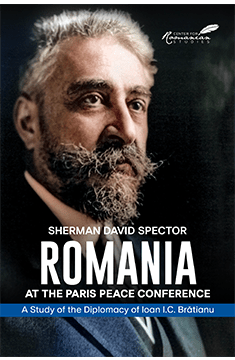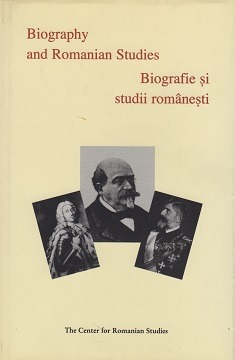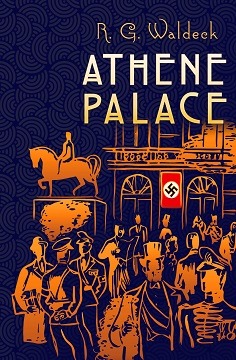Description
A Study of the Diplomacy of Ioan I.C. Brătianu
Sherman David Spector
About Romania at the Paris Peace Conference:
“Professor Spector is to be commended for the dispassionate manner in which he handles the highly controversial events surrounding the determination of Romania’s frontiers; his account is easily the best currently available” — Glenn Torrey, Slavic Review
“This work offers much to historical research, being supported by rich archival material which the writer has used to good effect” — Athan E. Karathanassis, Balkan Studies.
“Romanians throughout the world should be grateful to Professor Spector for the time and effort he has dedicated to studying one of the decisive chapters in their history.” — Alexandru Cretzianu
Written by Sherman David Spector, a noted American specialist on Romanian history, Romania at the Paris Peace Conference studies the diplomacy of Ioan I.C. Brătianu during World War I and in its aftermath that led to the formation of Greater Romania. The book describes the successful struggle waged by the Romanian government for recognition of the provisions of the secret treaty of 1916 and, in addition, for approval of the de facto annexation of Bessarabia, carried out in 1918 with the encouragement of the Central Powers. A substantial share of the credit for this achievement, Spector asserts, must be given to Ioan I.C. Brătianu, a stubborn, over-bearing, yet skillful negotiator who answered all attempts to delineate more equitable frontiers with a rigid restatement of Romania’s full claims.
Brătianu was a master of that subtle, farsighted, and somewhat disreputable diplomacy, in other times referred to as “Byzantine.” Like his Byzantine forebears, Brătianu was adept in the art of playing nations against each other for his own benefit. The uncertainty in which he left the Great Powers as to which side Romania would eventually join was a masterpiece of political strategy. Vacillation as a diplomatic art was brought to its loftiest height of perfection by Romanian rulers during the centuries of precarious existence wedged between the Turks, Magyars, and Slavs.
Brătianu proved a worthy successor to his predecessors. From 1914 to 1916, he executed one of the most notable acts of political tightrope walking. The Germans assumed he would never fight against them but feared he might not fight for them. The Allies doubted if he would ever fight for them but hoped he would not fight against them. Finally, he threw in with the Allies at the decisive moment, and the results were catastrophic. But out of the catastrophe, Romania emerged with her territory and population doubled, becoming the sixth-largest country in Europe and the dominant state in Southeastern Europe.
A native of Andover, Maryland, Sherman David Spector was a professor of history at Russell Sage College in New York. A noted American specialist on the history of the Romanians, apart from Romania at the Paris Peace Conference, first published in 1962, Professor Spector is the author of A History of the Balkan Peoples (with Rene Ristelhueber), published in 1972. In 1964 and 1970, he was Fulbright-Hays professor at the University of Bucharest.






Reviews
There are no reviews yet.